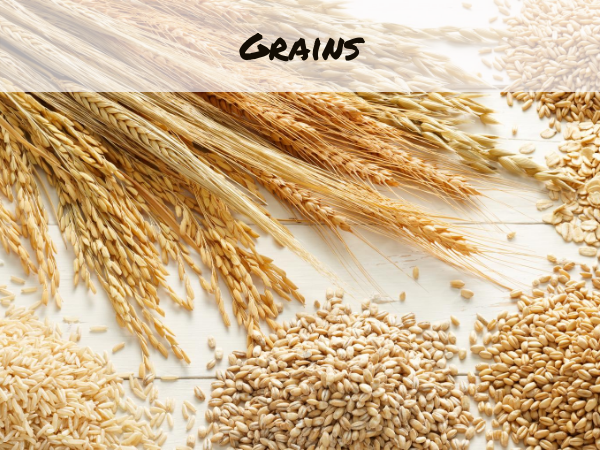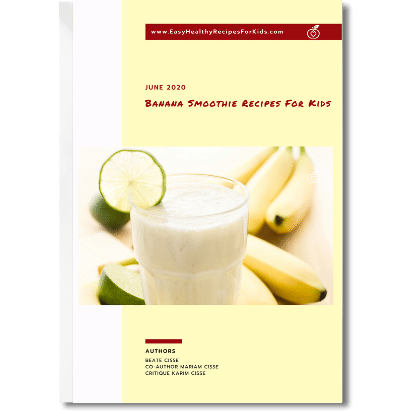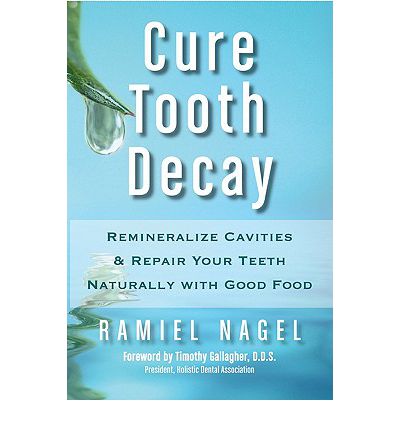Whole Grains
Whole grains are said to be an important part of our everyday diet. They are at the bottom of the governmental food pyramid and it is suggested that we eat around 6+ (varying on age, physical activity and gender) servings a day, of which grains should make up at least half. They are high in fibre, especially grains in their whole form. Fibre reduces the risk of heart disease, diabetes and lowers cholesterol levels, it
also makes you feel full so it is important not to eat to much, so that you can leave enough room for the rest of your diet. Important vitamins and minerals for example iron, magnesium and B vitamins are gained from adding grains to your diet.

The refining process however takes many of these vitamins and minerals away giving the title refined grains. These vitamins and minerals can be restored after the refining process labeling them as enriched grains. Although they are never as nutritious as the original. Grains are typically made up of three parts the bran, germ and endosperm. When these three parts are intact the grain is called a whole grain. Refined grains on the other hand only contain one (endosperm) of these three parts. Grains are refined to achieve a longer shelve life and give the grain an overall finer texture. To gain these benefits the sacrifice of being less nutritious than whole grains and containing less fiber is made.

Receive a free to download 27-page e-booklet:
Banana Smoothie Recipes For Kids
and subscribe to our monthly newsletter filled with new recipes, ideas and insights.
There are many believes out there regarding grains. There are people who believe that they are good for you and are part of a nutritious diet, people who think they are actually harmful to the human body and people who think that they are just plain useless and are not required for nutrition at all. These believes have so called facts to back them up, with all these convincing arguments however it is easy to get confused and overwhelmed. Should I be eating or should I not, is it harmful to my health, or is it beneficial?
Are there phytates in my whole grains?
Phytate
is non digestible by humans and makes certain minerals unabsorbable,
minerals like calcium, iron, zinc and magnesium. So no matter how much
food you eat containing these specific minerals you will not get their
full potential. Ramiel Nagel explores the devastating effects of this fact on our teeth in " Cure Tooth Decay".
Phytates are found in nearly all types of grains. To reduce the phytates in grains it is possible to either, soak, sprout or ferment the grains before consuming. People who before could not tolerate grains may be able to after undertaking these processes.
To reduce phytate levels:
Soak the grains 7-24 hours (depending on the type of grain) in water.
or
Sprouting whole grains: such as wheat, millet, rye and spelt. To sprout place the whole grains in a jar with water and cover with a cheese cloth, rinse and replace the water with fresh water at least 2-3 times a day (to hinder mold growth) or until you see sprouting which can take 2-4 days. Or soak overnight drain and leave.
or
Fermenting grains when they are whole: soak in water adding whey, lemon juice, butter milk, kefir or yogurt for 7-24 hours (depending on the type of grain) then rinse. Are the grains already milled into flour it is still possible to ferment them as you can see in the two ingredient pizza dough recipe.
These methods are said to help not only with the phytate levels but also help to release even more nutrients. Although I must admit right now it just means extra work in the kitchen but it’s worth a try I mean it can’t hurt can it.
There are also diets that totally exclude grains even whole grains for weight loss reasons, believing that eating grains regularly makes you gain weight. They believe that the nutrients gained from grains can easily be replaced by vegetables and nuts etc. Diets like the primal diet put grains up there with smoking and alcohol. The belief
that consuming grains as part of your diet makes you gain weight comes mostly from the extensive use of refined grains like white rice and white flour which are full of carbohydrates which fill you up and contain hardly any nutrients.
I think on this subject we as individuals need to make up our own minds on grains being involved in our diet but I believe everything in moderation and of the best quality we can source. As long as we don’t eat too much of it and sustain a healthy and balanced diet, we won’t be doing too much wrong. Nutrition is about variety and balance and listening to your body.
There are also options for people who are intolerant towards gluten and lead a gluten free diet.
List of grains that contain gluten:
- Rye
- Barley
- Wheat - couscous
- Spelt
- Oats
List of gluten free grains
- Amaranth
- Buckwheat
- Corn
- Millet
- Quinoa
- Rice
- Tapioca
Now that we know what we can do to make whole grains healthy grains as well, it's time to take a look at how to make it work in your kitchen. Again planning trumps. If you know what kind of grain accompanies your dish in the evening soak it in the morning. The same applies to your homemade bread recipes. That it can properly ferment prepare it 7 to 12 hours before you are going to finally bake it.
- Easy Healthy Recipes For Kids ›
- Whole Grains

